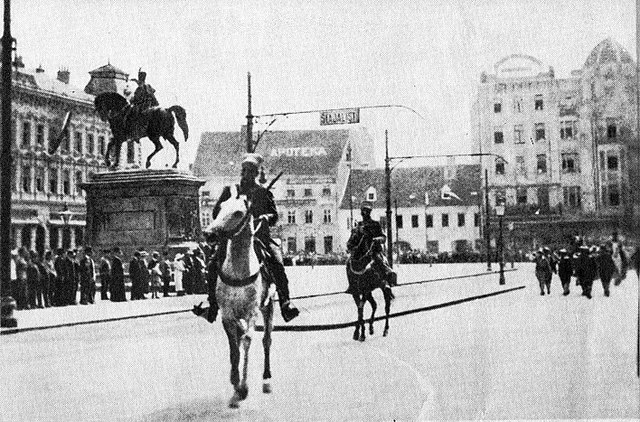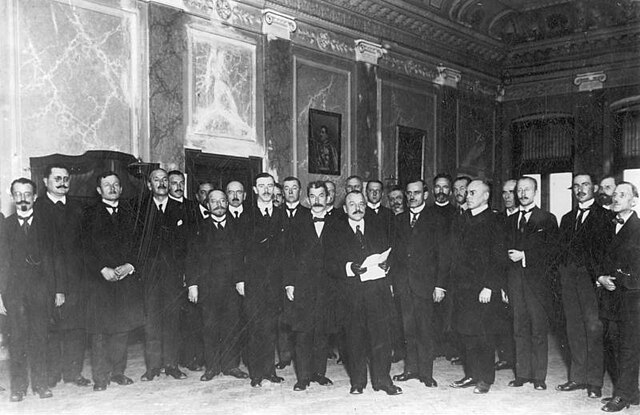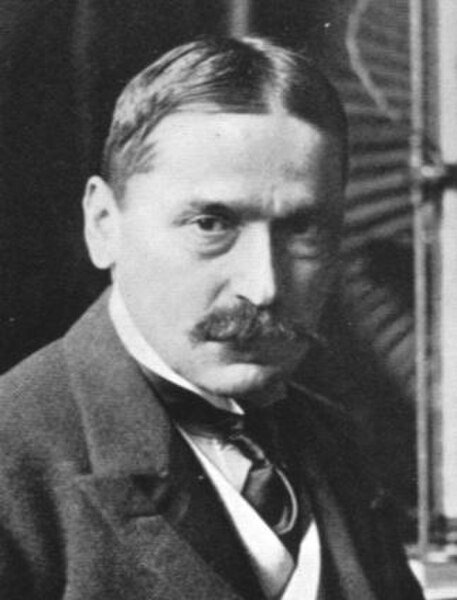The Vidovdan Constitution was the first constitution of the Kingdom of Serbs, Croats and Slovenes. It was approved by the Constitutional Assembly on 28 June 1921 despite the opposition boycotting the vote. The Constitution is named after the feast of St. Vitus (Vidovdan), a Serbian Orthodox holiday. The Constitution required a simple majority to pass. Out of 419 representatives, 223 voted for, 35 voted against and 161 abstained.
1921 Constitution
The Kingdom of Yugoslavia was a country in Southeast and Central Europe that existed from 1918 until 1941. From 1918 to 1929, it was officially called the Kingdom of Serbs, Croats, and Slovenes, but the term "Yugoslavia" was its colloquial name due to its origins. The official name of the state was changed to "Kingdom of Yugoslavia" by King Alexander I on 3 October 1929.
Celebrations in Zagreb during the formation of the National Council of the State of Slovenes, Croats and Serbs, October 1918
Serbian Army in Zagreb's Ban Jelačić Square in 1918
Delegation of the National Council of the State of Slovenes, Croats and Serbs led by Ante Pavelić reading the address in front of regent Alexander, 1 December 1918
Mihajlo Pupin, Serbian physicist and physical chemist. He influenced the final decisions of the Paris Peace Conference when the borders of the Kingdom were drawn.





